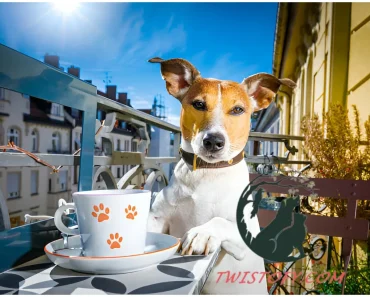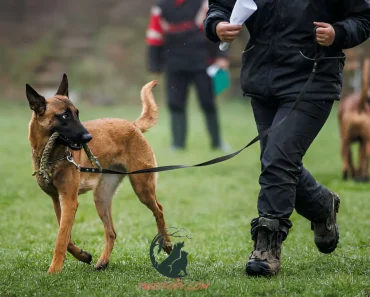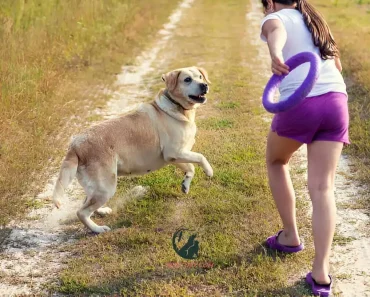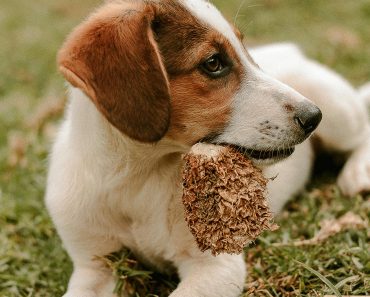Toxic Foods For Dogs , Dogs are beloved members of our families, and as pet owners, it’s our responsibility to ensure their health and well-being. While we often treat our furry friends to scraps from the table or share our meals with them, it’s crucial to remember that not all human foods are For Dogs . In particular, certain meats can pose serious health risks to our canine companions, with one meat standing out as particularly toxic.
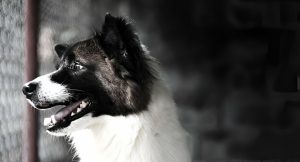
Toxic Foods For Dogs
What is the one meat you should never give a dog?
One meat that you should never give to a dog is raw pork. Raw pork may harbor parasites like Trichinella spiralis, potentially inducing trichinosis in dogs. This condition can lead to gastrointestinal upset, muscle pain, weakness, and in severe cases, organ damage. Additionally, pork is often high in fat, which can lead to pancreatitis in dogs. It’s best to avoid feeding raw pork to dogs and ensure that any pork given to them is thoroughly cooked and free of bones and seasoning.
The Dangers of Feeding Human Foods to Dogs:
Feeding human foods to dogs can pose several dangers to their health. Here are some key points to consider:
- Toxicity: Many foods that are safe for humans can be toxic to dogs. For example, chocolate, grapes, raisins, onions, garlic, and certain types of nuts can cause severe illness or even death in dogs.
- Digestive Issues: Dogs have different digestive systems than humans. Feeding them certain human foods, especially those high in fat, can lead to digestive upset, including diarrhea, vomiting, and pancreatitis.
- Obesity: Some human foods are high in calories and can contribute to obesity in dogs. Obesity is linked to numerous health problems in dogs, including diabetes, joint issues, and heart disease.
- Nutritional Imbalance: Dogs have specific nutritional needs that may not be met by a diet primarily consisting of human foods. Feeding them table scraps or leftovers can lead to nutritional deficiencies or imbalances over time.
- Choking Hazards: Dogs may not chew their food as thoroughly as humans, increasing the risk of choking on small bones or pieces of food.
- Behavioral Issues: Feeding dogs from the table can encourage begging behavior and reinforce bad habits. It’s important to establish boundaries and feed dogs appropriate food in their own bowls.
Dogs are beloved members of our families, and as pet owners, it’s our responsibility to ensure their health and well-being. While we often treat our furry friends to scraps from the table or share our meals with them, it’s crucial to remember that not all human foods are safe for dogs. In particular, certain meats can pose serious health risks to our canine companions, with one meat standing out as particularly toxic.
The Dangers of Pork for Dogs:
Pork can be dangerous for dogs for several reasons:
- High Fat Content: Pork is often high in fat, which can lead to pancreatitis in dogs, a painful and potentially life-threatening inflammation of the pancreas.
- Trichinosis: Raw or undercooked pork can contain the parasite Trichinella spiralis, which can cause trichinosis in dogs. This condition can lead to gastrointestinal upset, muscle pain, weakness, and in severe cases, organ damage.
- Salt and Seasonings: Pork products may be seasoned with ingredients like salt, garlic, or onion, which can be harmful or toxic to dogs in large amounts.
- Bones: Pork bones, particularly cooked bones, can splinter and cause choking, intestinal blockages, or punctures in a dog’s digestive tract.
- Bacterial Contamination: Raw pork can be contaminated with bacteria such as Salmonella or E. coli bacteria, present in contaminated food, pose a risk of food poisoning to both dogs and humans.
While small amounts of cooked, lean pork may be safe for some dogs, it’s generally best to avoid feeding pork to dogs altogether. If you choose to feed your dog pork, make sure it’s cooked thoroughly, without any seasoning or bones, and fed in moderation. Nonetheless, it’s advisable to consult your veterinarian before incorporating any new food into your dog’s diet to ensure their health and safety.
What Are Toxic Foods For Dogs 13 human foods toxic to dogs?
Here are 13 common human foods that are toxic to dogs:
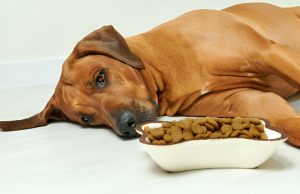
Toxic Foods For Dogs
- Chocolate: Poses a significant threat due to its theobromine and caffeine content, capable of causing vomiting, diarrhea, rapid breathing, increased heart rate, seizures, and even fatality.
- Grapes and Raisins: Can cause kidney failure in dogs, leading to vomiting, diarrhea, lethargy, and lack of appetite.
- Onions and Garlic: Contains compounds that can damage red blood cells and cause anemia in dogs, leading to weakness, vomiting, diarrhea, and breathing difficulties.
- Xylitol: An artificial sweetener present in sugar-free products like gum and certain baked goods, triggers a swift insulin release in dogs, leading to hypoglycemia, seizures, and liver failure.
- Avocado: Contains persin, which can cause vomiting and diarrhea in dogs. The pit poses a choking hazard, and the high fat content can lead to pancreatitis.
- Alcohol: Contains persin, a compound that can provoke vomiting and diarrhea in dogs, leading to vomiting, diarrhea, difficulty breathing, tremors, coma, and death.
- Macadamia Nuts: Contains an unknown toxin that can affect a dog’s nervous system, causing weakness, tremors, vomiting, hyperthermia, and inability to walk.
- Caffeine: Commonly found in coffee, tea, energy drinks, and certain medications, poses risks to dogs.
- Raw Eggs: Can contain Salmonella or E. coli bacteria, leading to food poisoning in dogs. Raw egg whites also contain avidin, which can interfere with biotin absorption and cause skin and coat issues.
- Bones: Cooked bones can splinter and cause choking, intestinal blockages, or punctures in a dog’s digestive tract.
- Raw Meat and Fish: Can contain harmful bacteria like Salmonella or parasites such as Trichinella spiralis, leading to food poisoning or parasitic infections in dogs.
- Salt: Excessive salt intake can lead to sodium ion poisoning in dogs, causing excessive thirst, vomiting, diarrhea, tremors, seizures, and even death.
- Dairy Products: Many dogs are lactose intolerant and may experience digestive upset, including diarrhea and gas, after consuming milk or dairy products.
It’s important to keep these foods out of reach of dogs and to never intentionally feed them to your canine companion. If you suspect your dog has ingested any toxic foods, contact your veterinarian immediately for guidance.
Safe Alternatives for Toxic Foods For Dogs :
Here are some safe and healthy alternatives to human foods that you can offer to your dog:
- Lean Meats: Skinless, boneless chicken, turkey, and beef are good sources of protein for dogs. Ensure they are cooked thoroughly without any seasoning or bones.
- Fish: Cooked fish such as salmon or tuna (without bones and seasoning) can provide omega-3 fatty acids, which are beneficial for skin and coat health.
- Vegetables: Many dogs enjoy vegetables like carrots, green beans, peas, and sweet potatoes. These can be given raw or cooked as healthy snacks or added to their regular meals for extra fiber and nutrients.
- Fruits: Some fruits like apples (without seeds), blueberries, strawberries, and bananas can be safe and tasty treats for dogs in moderation. Avoid giving fruits with seeds or pits, such as cherries and peaches, as they can be a choking hazard.
- Plain, Cooked Rice or Pasta: Plain rice or pasta can be a bland and easily digestible option for dogs with upset stomachs or as a base for homemade dog meals.
- Dairy: Small amounts of plain, unsweetened yogurt or cheese can be given to some dogs as a source of calcium and probiotics. However, many dogs are lactose intolerant, so monitor for any signs of digestive upset.
- Commercial Dog Treats: There are plenty of commercially available dog treats formulated specifically for canine health and nutritional needs. Look for treats made with wholesome ingredients and avoid those with excessive additives or fillers.
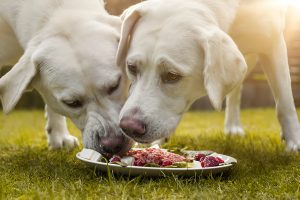
Toxic Foods For Dogs
Remember to always introduce new foods gradually and in moderation, and monitor your dog for any adverse reactions. Additionally, consult with your veterinarian before making any significant changes to your dog’s diet, especially if they have any existing health conditions or dietary restrictions.
As responsible pet owners, it’s crucial to be aware of the foods that are safe and unsafe for dogs to consume. While it can be tempting to share our meals with our furry friends, certain human foods, such as pork, can pose serious health risks to dogs. By avoiding feeding your dog pork and other toxic foods, you can help ensure their health and well-being for years to come. Remember, when in doubt, always consult with your veterinarian to determine the best diet for your dog.

